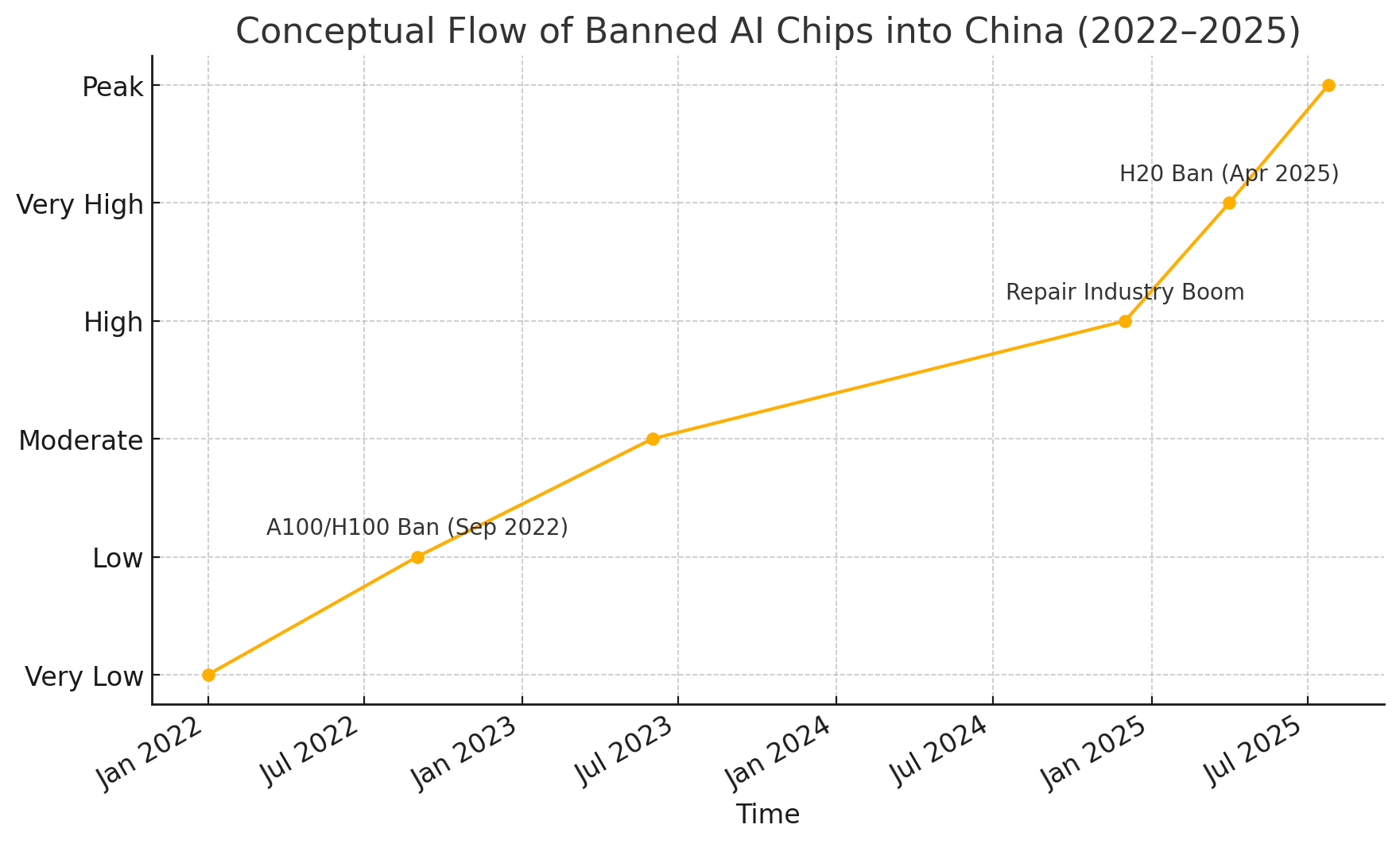
There's this whole situation happening with AI chips that's got us thinking a lot about how we approach global tech policy.
The U.S. has export controls to keep advanced AI chips (like Nvidia's B200 and H100) out of China for national security reasons. Makes sense on paper, right? Except here's what's actually happening: at least a billion dollars worth of these "banned" chips are making their way into China anyway.
And it's created this whole underground economy. Boutique repair shops are popping up that specialize in fixing and extending the life of these chips. They're doing PCB repairs, software testing, the whole works. From a business perspective, it's honestly pretty impressive innovation, but it also makes us wonder if we're getting anywhere here.
As an AI company, we're watching this and asking: Are these regulations actually achieving what they set out to do? Or are we just making things more complicated and expensive while the technology flows anyway?
Look, we get the national security concerns. Nobody wants to hand over technology that could be used against us. But we also see the other side of this equation. AI has massive potential to solve global problems, and some of those problems don't really care about national borders.
Climate change, disease, supply chain issues - these are challenges that affect everyone. And here we are creating artificial scarcity of the tools that might help solve them.
We're not saying we should throw caution to the wind and share everything. But watching this black market boom makes us wonder if there's a better way to balance innovation, security, and global cooperation.
What if instead of trying to completely restrict access, we found ways to encourage responsible development everywhere? What if we built frameworks for collaboration that actually worked?
We know that sounds idealistic. Geopolitics is messy and trust is hard to build. But right now it feels like we're creating more problems than we're solving.
The current approach isn't really keeping the technology away from China - it's just making it more expensive and less transparent. Meanwhile, we're missing opportunities to work together on bigger challenges.
As a company building AI tools, we don't have all the answers here. But watching this situation unfold makes us think we might need a completely different approach to global AI policy.
What do you think? Are export controls the right tool for this job? Or are we just creating expensive workarounds while missing the bigger picture?
Because right now it feels like we're playing a game where everyone loses except the black market dealers.
How are other AI companies thinking about this balance between security and innovation?






.svg)
